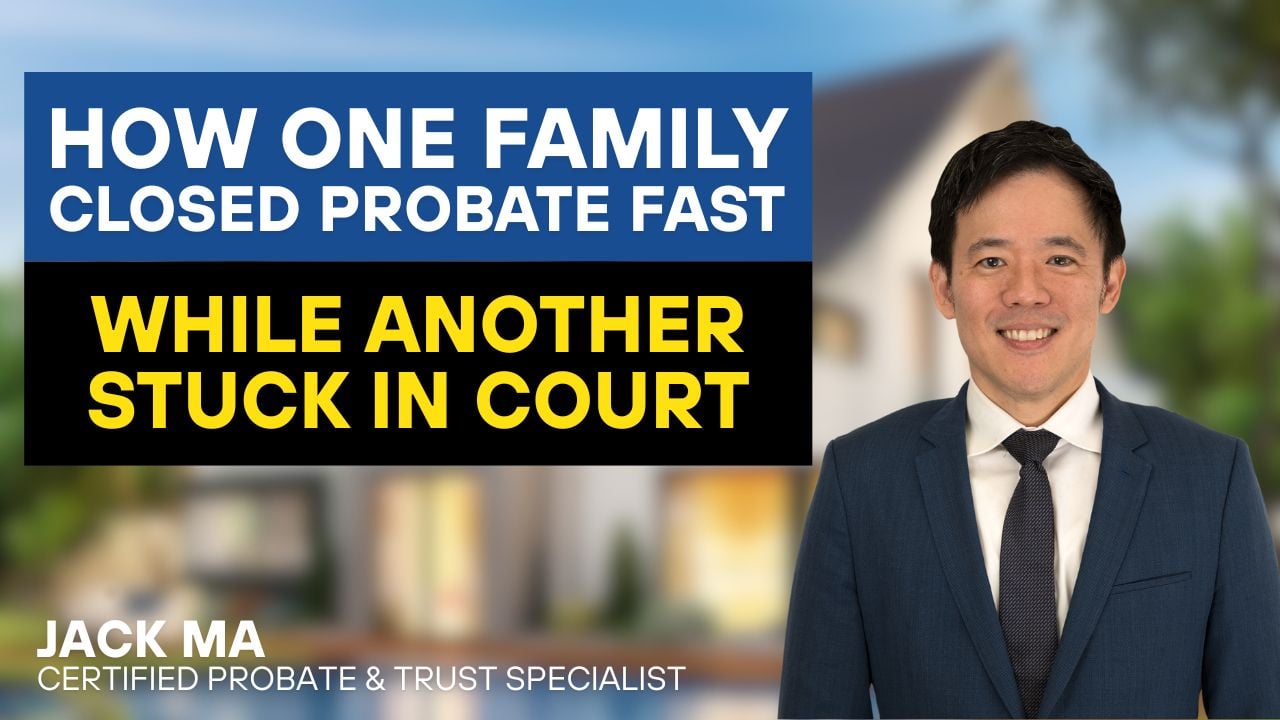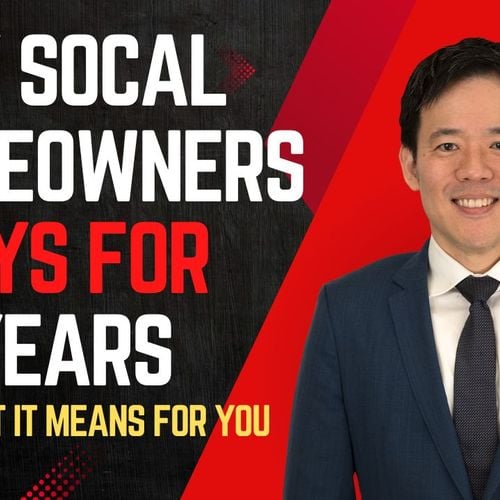What Happens to Real Estate Without a Will or Trust in California?
(And Why Full vs. Limited Authority Can Make or Break Your Probate Sale)
When it comes to real estate and inheritance in California, one thing is clear: if there's no living trust, probate is almost always required.
I’ve seen two homes in the same market, same month - one close in 30 days with zero court delays… and the other got stuck in limbo, waiting for a judge's approval and risking overbids from strangers in court.
What made the difference?
➡️ One had full authority, and the other had limited authority.
Whether you're dealing with a probate property now or trying to avoid putting your family through this process in the future, this article will help you understand the key differences — and how to protect your assets and loved ones.
What Actually Happens to a Home Without a Will or Trust?
When someone passes away in California without a living trust, the real estate doesn’t pass automatically to heirs. Instead, the home usually enters probate, a legal court process that settles debts, validates any will, and determines who inherits what.
And here’s a key point most people don’t realize:
🔍 Even if someone has a will, the home still goes through probate.
A will is not enough to avoid court. It simply gives the court guidance — but the process of transferring the title, settling taxes, and selling the home is still supervised by a judge unless a trust exists.
What Is Probate, and What Does It Involve?
Probate can take anywhere from 9 to 18 months or more, depending on the court's schedule, family dynamics, and how prepared the estate is. Here’s what typically happens:
A family member files a petition with the court.
A personal representative is appointed (executor or administrator).
The court assigns either full or limited authority.
A court-appointed probate referee values the real estate.
The property is sold, either privately or through court confirmation.
Proceeds are used to pay debts and are then distributed to heirs.
This is where the type of authority becomes critical — because it affects how easily (and quickly) a home can be sold.
Full Authority vs. Limited Authority in Probate
Under California’s Independent Administration of Estates Act (IAEA), the court can grant one of two types of authority to the estate representative:
✅ Full Authority
Property can be sold without court confirmation.
The representative only needs to send a notice of proposed action.
The process is faster and more like a traditional sale.
Great for buyers and heirs because there’s more certainty.
📍 Real Example:
I helped a family in North Orange County list a probate home under full authority.
We priced it at $1,180,000, received multiple offers, and sold it for $1,270,000.
The transaction closed in 30 days, just like any regular home sale — no court, no waiting, and no extra stress for the heirs.
⚠️ Limited Authority
The sale must be confirmed in court.
Public notice must be posted, and court hearings are required.
The deal is subject to overbidding — meaning someone else can show up and bid higher in court.
Adds weeks (or even months) to the timeline and can derail solid offers.
📍 Real Example:
I’m currently helping a family sell a probate home in Pasadena. We listed it at $900,000, accepted an offer at $1.1 million, and then... we waited.
Because the representative only had limited authority, we needed a court confirmation hearing.
Now, the judge has set the overbid opening price at $1.15 million. Even though we already had a great offer, someone else could still outbid our buyer in court — putting everything back at square one.
Why This Matters to You and Your Family
If your loved one owns real estate and doesn’t have a trust, your family could be forced into:
A lengthy and stressful court process
Public exposure of personal assets and debts
Legal fees and probate costs (often 5–8% of estate value)
Delays in receiving inheritance or selling the property
Emotional disagreements between heirs
Even with a will, probate is required.
Only a properly funded living trust can bypass the court process altogether.
How a Living Trust Changes Everything
With a revocable living trust, the appointed successor trustee can:
Take immediate control of real estate
Sell the property without court involvement
Distribute proceeds to heirs privately
Avoid probate fees, overbids, and delays
A trust protects your family from being stuck in court for over a year — and makes sure your wishes are carried out smoothly and efficiently.
I Help Families Across San Gabriel Valley & North Orange County
As a Certified Probate & Trust Specialist, I help families navigate complex probate and trust sales from start to finish.
I’ve successfully represented clients in:
Brea
Yorba Linda
Walnut
Chino Hills
Rowland Heights
Diamond Bar
La Habra
Whether you're an heir trying to sell a probate property or a homeowner planning your estate, I can help guide you through the process and connect you with trusted attorneys and resources.
Let’s Talk
Have questions about probate real estate, full vs. limited authority, or how to avoid probate altogether?
📞 Call or text me at 909-610-5188
📍 Stop by my office in Walnut, CA
🌐 Visit https://jackmarealestate.com/ for more tips and resources
🗣️ I also speak fluent Mandarin — and I’m happy to help bilingual families navigate this process with clarity and care.
And if you know someone who needs help, your referrals are always appreciated.


